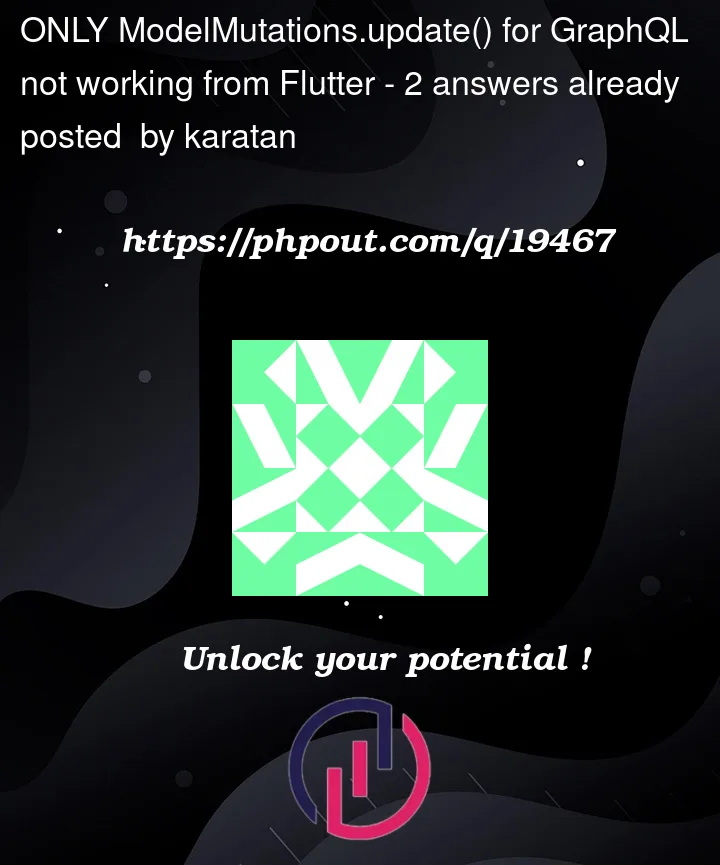https://docs.amplify.aws/lib/graphqlapi/mutate-data/q/platform/flutter/#run-a-mutation
Referencing the official, I’ve been trying to .update() an item I was successfully able to add through the .create(). The mutation response that I receive shows me a successful attempt, but there are no actual updates being made.
Tried to make simpler changes, such as switching bools, but same result.
Then I remembered that making changes from lambda required the .key() method to check the primary key of the item to be updated. Is there a same check mechanism from flutter/Dart? If so, what would the implementation of that look like?
I can confirm that ModelMutations.update(newClass) contains the correct Class and that the version field of the item in DynamoDB Console is being incremented per request, just not the actual item.




2
Answers
The short answer to whether the
.update()method parameter requires theprimary_keyfield is YES. Reason being, with theprimary_key, the mutation response is a success, but without it, I getnull check operator used on a null value, which I believe (without any documented evidence) indicates a scenario where the API either failed to return the existing item in the DDB table or simply returnedNone/null. The same null message is recorded when a different key is specified.As to why the update doesn't occur, I am still at a loss. Particularly as other methods such as
.create()seem to be working just fine when replaced.I tried a few things and got it to work, so leaving a trail for future users. Maybe most people not as beginner like me.
Conlusion first, all I did was;
After doing this, the mutation response began returning an error (it didn’t before) and led to easy debugging from there.
There are some resources that suggest passing
_versionas the parameter when using DataStore with GraphQL, but the implementation of.copyWith()oncodegen modelsin Flutter didn’t consider this a valid index as the items were added using the GraphQLAPI and hence in my case, it was easier to simply delete DataStore.Some other resources I used;
(https://github.com/aws-amplify/amplify-js/issues/10664)
(https://docs.aws.amazon.com/amazondynamodb/latest/developerguide/Programming.Errors.html)
Another suggestion, although a very obvious one that took me a while to try, is to log
response.errorsfrom mutation response.